Covid-19 and Mission
Despite a plethora of material, aimed at helping churches and individual believers to respond to the pandemic crisis, there appears to be little focus, if any, on the theological – and missiological – implications that people can no longer ignore the possibility of death.
Whether Covid-19 will lead to a resurgence of faith in Europe will be seen in years to come but, for now, it has forced churches to innovate in their responses to grief and death and share the hope in Christ beyond the walls of the church.
Mourning is an expression of love, it is the other side of love. We cry because we love. And the greater the love, the deeper the pain. Mourning is the price paid in pain for the end of a dear and valuable relationship.
It is a particular feature of our work that we are with people when their world is turned upside down and everything they thought they knew has been stripped away. The key is being there.
Using the book of Habakkuk, and her own experience, Mags Duggan takes the reader on a reflective journey to help face and walk through the most difficult of times.
This issue of Vista explores the uncomfortable subject of death, and the contemporary Christian response to it.
Read the full findings of Vista’s survey of missionaries in Europe, exploring the impact of Covid-19 on their work.
We are going through profound shocks: socially, politically, economically… and the impact of these will last for many years. How does the theme of reconciliation contribute to this current time, particularly in relation to our relationship with the wider natural world?
Reconciliation does not happen overnight. And here is the good news – the awkward situation with the virus, opens up enough time for us.
COVID-19 restrictions are posing challenges for missionaries in Europe and across the globe. In late April, the Vista editors asked Darrell Jackson to develop a questionnaire to explore the response of two European mission agencies: European Christian Mission (ECM) and Greater Europe Mission (GEM).
Secularism and Nominalism
Are migrants in Europe likely to be more secular or more religious than European-born nationals? Most studies tend to suggest that migrants are generally more religious than national-born Europeans and that for some at least, the fact of relocating to, or being resettled in, a new country can be a catalyst in a change of religious affiliation and identity
If we want to survive in today’s Europe, we actively need to challenge the gods of our time.. For, as Jesus himself put it: “You cannot serve both God and …” If we actively serve the gods of Europe, we may in the end find ourselves not worshiping the God of the Universe.
Over the last few decades, we have been witnessing the persistence and even the resurgence of religious beliefs and practices in societies that had undergone a long process of secularisation.
A YouGov survey of 1,660 people in the UK suggested that there are more people attending church (albeit less frequently), a reduction in the number of professed atheists, an increase in the number of agnostics, and an increase in the numbers of those who say they pray occasionally …
The same year that Charles Taylor published A Secular Age (2007), Philip Jenkins also wrote about the interface between religion and secular society in his book God’s Continent: Christianity, Islam, and Europe’s Religious Crisis …
Two swallows don’t make a summer, says the proverb. Yet two recent Dutch books about reflection on roots could perhaps signal a significant climate change in Europe concerning interest in the Bible and Christianity.
To date there have been two principal attempts to make Charles Taylor’s A Secular Age more accessible to the general reader.
The famous maxim that “demography is destiny” may, or may not, be attributable to Auguste Comte, but it was certainly Comte who first wrote about how population trends and distributions could determine the future of a country.
One of the most striking aspects of the socioreligious context of Europe is the high proportion of so-called nominal Christians. These are people who are affiliated to a Church and/or identifying as ‘Christian’ in surveys.
The Lausanne Global Consultation on Nominal Christianity was held in Rome, Italy on 14-18 March 2018. What follows is the full text of the Lausanne Rome 2018 Statement on Nominal Christianity, issued after that consultation.
Contemporary Christian beliefs and behaviours in Western Europe are rarely researched beyond the national level. To address this knowledge gap, Pew Research have published a comprehensive 156-page research report
It took only few years before the countries from the Communist block dismantled the one party systems and introduced political pluralism as a precondition to transition into democracies.
Is there a relationship between religious freedoms and secularity? We take some recognized measures of religious liberty and investigate the relationship with the NOVA Index of Secularity.
I know a church which one hundred years ago had 900 young people attending its Sunday school every week. Its current weekly attendance is probably closer to 90, of all ages. What went wrong?
While Europe as a whole may be seen as increasingly secular, there are a surprising number of mentions of God, the church and religion in the constitutions of individual countries. The table below gives an overview
Is there any reliable way to assess the process of secularisation? If secularity is the result of this process is there any way to meassure the current state of secularity in Europe?
Readers of Vista can hardly be unaware that over the last five years or so, the wearing of a cross in public or the displaying of a crucifix on the walls of a public school, hospital or office has become a focus for social policy legislators
On the Pope’s recent visit to the UK, Benedict XVI launched a blistering attack on “aggressive secularism” which seeks to exclude “God, religion and virtue from public life”. Despite a rocky start, the media generally applauded his comments
Islam in Europe
Are migrants in Europe likely to be more secular or more religious than European-born nationals? Most studies tend to suggest that migrants are generally more religious than national-born Europeans and that for some at least, the fact of relocating to, or being resettled in, a new country can be a catalyst in a change of religious affiliation and identity
The same year that Charles Taylor published A Secular Age (2007), Philip Jenkins also wrote about the interface between religion and secular society in his book God’s Continent: Christianity, Islam, and Europe’s Religious Crisis …
In 2016, the Pew Research Centre estimated that one in every twenty Europeans self identifies as ‘Muslim’, making a total Muslim population in Europe of just under 26 million. This is a significant increase over the 2010 population that Pew reported at 19.5 million. in the context of Islam, and has already been in the margins for decades
How should the church in Europe respond to the growing visible presence of Muslims in our continent? I suggest in a fourfold way, with i. a compassionate heart; ii. an informed mind; iii. an involved hand; and iv. a witnessing tongue. Nevertheless, before we seek to touch the hearts of our Muslim friends with the Gospel of Jesus Christ, we need to honestly look at our own hearts.
When I look at the way the Spirit of God is working amongst those from a Muslim background in the UK, I am both very excited and hugely disappointed at the same time. It is a strange experience to have – praising and crying, rejoicing and pleading, very encouraging and sadly frustrating.
Gone are the days when mission agencies gave advice to new missionaries going to Muslim communities that said something like “You won’t see people come to faith, but you’re called to be faithful. Serve God, and look after your walk with Him, and you may see some minor breakthrough”
There are a number of courses and other resources available to equip you in reaching Muslims
Muslims are not the people who live somewhere else, but are our neighbours in all European states. They are in Europe to live and stay, and they have the right to hear the good news.
Wednesday of Holy Week 2010. The sound of shrill trumpets and thunderous drums fill the air as marching bands accompany the Easter processions around the streets of Cordoba. Rising above it all is the minaret turned belltower of the mosque-cathedral: a potent symbol of Spain’s mixed religious heritage.
There are two caricatures of Muslims in Europe. The first portrays them as religious fundamentalists, potential terrorists, cultural imperialists, resistant to modernity, and intent on establishing a European Islamic superpower.
The call for a Europe-wide ban on wearing the burqa, from the German leader of the European Parliament’s Free Democrats, Silvana Koch-Mehrin, is the latest contribution to a growing debate about the rights of Muslim women
How can we respond practically to the challenge of Islam in Europe and what resources are available to help?
Book reviews and resources
In this concise and very readable publication, Bruce Nicholls, one of the founders of the Theological Commission of the World Evangelical Alliance, gives a rapid overview of the issue of climate change and then concentrates on the Christian response.
Using the book of Habakkuk, and her own experience, Mags Duggan takes the reader on a reflective journey to help face and walk through the most difficult of times.
A YouGov survey of 1,660 people in the UK suggested that there are more people attending church (albeit less frequently), a reduction in the number of professed atheists, an increase in the number of agnostics, and an increase in the numbers of those who say they pray occasionally …
Two swallows don’t make a summer, says the proverb. Yet two recent Dutch books about reflection on roots could perhaps signal a significant climate change in Europe concerning interest in the Bible and Christianity.
To date there have been two principal attempts to make Charles Taylor’s A Secular Age more accessible to the general reader.
There are a number of courses and other resources available to equip you in reaching Muslims
Established in 1993 in Belarus, the Russian-language newspaper Kolokol (The Bell) has a vision to reach beyond the church with the Good News of Christ, in particular places where Christians may not be allowed to freely share the Gospel.
Hardy and Yarnell are both church planters and missional thinkers based in the UK, and their book clearly draws upon considerable practical experience as well as serious missiological and theological reflection.
The following resources are just a small selection of those available. If you know of other useful resources, please share them on our Facebook page:
Central and Eastern Europe
The Roma are people characterised by a mosaic of cultures, languages, and identities, who are often misunderstood or ignored. Despite their long history in Europe, they are still often viewed as separate from other Europeans, as ‘Other,’ or the perpetual ‘stranger.
Mission among indigenous people must operate within the story of the people and place concerned, as well as the resurrected Messiah story we profess. Reason can only take us so far.
Across Central and Eastern Europe nationality dictates religious affiliation to Orthodoxy. any change from the inherited Christian tradition to another Christian denomination such as Brethren or Baptist, is seen as betrayal of their ancestors’ Church.
East Germany, once the birthplace of the Protestant Reformation, is now among the most irreligious regions in Europe,. where many people grow up without ever encountering the Christian faith. What does it mean to speak of mission in a society shaped by religious indifference?
Just under 1/3 of all participants at the Lausanne 20/21 gathering were from Central and Eastern Europe. As the percentage of born-again Christians across Eastern Europe is much smaller than in Western or Northern European countries, this shows that organising committee put effort to mobilize participants from Eastern Europe.
When analysing the cross-cultural mission of the European Churches, one might see different characteristics. We will share a few observations from a Romanian perspective.
There is a bus which runs directly from a small Roma Hamlet in NE Slovakia to Sheffield. When Slovakia became part of the EU in 2007, many Slovakian Roma travelled on this bus and settled in estates in the north of Sheffield, UK.
In this article we will look at 1 Peter 1:1 and at the Protestant-Evangelical movement in Kosovo. This church exists in the context of Islam, and has already been in the margins for decades
This article seeks to contribute to the ongoing conversation on the state of the church in mission in Europe with a special focus on Central and Eastern Europe reflecting on future perspectives and challenges in six key areas.
A recent EBF Mission Partnership conference in Georgia sought to ‘encourage, and inspire in ministry’ a group of indigenous church planters from Eastern Europe.
Church Planting
The Roma are people characterised by a mosaic of cultures, languages, and identities, who are often misunderstood or ignored. Despite their long history in Europe, they are still often viewed as separate from other Europeans, as ‘Other,’ or the perpetual ‘stranger.
Mission among indigenous people must operate within the story of the people and place concerned, as well as the resurrected Messiah story we profess. Reason can only take us so far.
Hardy and Yarnell are both church planters and missional thinkers based in the UK, and their book clearly draws upon considerable practical experience as well as serious missiological and theological reflection.
Muslims are not the people who live somewhere else, but are our neighbours in all European states. They are in Europe to live and stay, and they have the right to hear the good news.
In the exciting days after the break-up of the Soviet Union, churches grew and revival seemed to be on its way. Nikolai Ivanov from The Bulgarian Bible League remembers his church in Sophia growing from 200 members to 5000 in less than three years.
Right across Europe, there are rumours of a growing wave of church planting movements and God at work in amazing ways amongst Muslims and Iranians, the African diaspora and the Roma to name just a few.
In 2002, the European Baptist Federation announced an ‘Indigenous Missionary Partnership’ based on the simple observation that indigenous missionaries had an advantage linguistically, were trusted locally, were culturally more relevant, required no time to orient to their context, and were significantly cheaper to deploy
Peter J Farmer and his wife Marsha and 3 kids are based in Nottingham, UK. After a number of years engaged in Pioneer Mission locally and throughout the city and county of Notts they began travelling across the 12 regions of Britain
Mission agencies have engaged in church planting across Europe for many decades. Yet increasingly they are engaged in facilitating church multiplication through partnering with national churches rather than being the pioneers themselves.
For Christians who want to adopt a missional mindset, Michael Frost poses the following important question: what does the reign of God through Christ look like in my neighbourhood?
European Union
Besides the traditional right-wing parties (conservative, liberal), new political formations and alliances have emerged which are transforming the political landscape and the language we use to describe it. How do we respond from an Evangelical Christian and a missional perspective.
The 2016 referendum on the UK’s continuing membership of the EU was not the first time UK voters had gone to the polls in an EU referendum, but it is certainly the one that history will recall in any post-2016 account of Europe.
As a nation, Britain was extremely badly prepared for the referendum on EU membership. There is a longstanding legacy of British neglect of the EU, indeed of all things ‘European’, not least among those who shape public debate in politics and the media.
Many Christians who said they were going to vote Leave had narratives that dominated their perspective. They didn’t all use the same language but three distinct controlling narratives were repeated over and over again.
For many years I have been interested in mission in Europe, encompassing the preaching of the gospel, justice ministries, and engagement in the public square. This deepened when I had the opportunity to live in Brussels in the 1990s, working in the Legal Service of the European Commission
How concerned are people living in the EU about the environment – and what do they think should be done to address these concerns? This was the focus of a Eurobarometer survey carried out in 2014 across all EU member states.
Since the onset of the financial crisis in 2008, as the hope of future prosperity has dissipated, so has confidence in the European project, and almost inevitably, nationalism has returned to Europe.
During the early 80s, as I became more aware of world and regional politics, European politics was dominated by that apparently impregnable wall separating East from West and of the vast empire of the USSR whose ranks were massed behind it.
In the early days of European integration Christians were heavily represented in the decision-making bodies of the European Communities. As European society changed, however, Christian influence in national governments, and correspondingly the European Council, declined.
European Values
Reaching Europe with the Gospel requires us to face up to an uncomfortable truth: Europe is still being secularised. Understanding the processes of secularisation is a vital part of discerning how Europe might be re-evangelised. This issue of Vista explores how large scale surveys such as the European Values survey help us do just that,
Contemporary Christian beliefs and behaviours in Western Europe are rarely researched beyond the national level. To address this knowledge gap, Pew Research have published a comprehensive 156-page research report
In 2016, the Pew Research Centre estimated that one in every twenty Europeans self identifies as ‘Muslim’, making a total Muslim population in Europe of just under 26 million. This is a significant increase over the 2010 population that Pew reported at 19.5 million. in the context of Islam, and has already been in the margins for decades
There is no such person as a ‘typical’ migrant in Europe. The experiences of the trafficked girl from Eastern Europe, the African family living just down the road or an Asian working in a multinational company will be worlds apart
European history reserves precious few pages to its nurture of religious freedom. The cherished religious freedom of the Greeks was embraced by the Romans. However, Domitian’s introduction of an Imperial Cult led to persecution of Christians and Jews
Is there a relationship between religious freedoms and secularity? We take some recognized measures of religious liberty and investigate the relationship with the NOVA Index of Secularity.
The resources relating to religious freedom have a global rather than solely European focus, however it is possible to extract information about Europe without too much effort.
On the Pope’s recent visit to the UK, Benedict XVI launched a blistering attack on “aggressive secularism” which seeks to exclude “God, religion and virtue from public life”. Despite a rocky start, the media generally applauded his comments
Wednesday of Holy Week 2010. The sound of shrill trumpets and thunderous drums fill the air as marching bands accompany the Easter processions around the streets of Cordoba. Rising above it all is the minaret turned belltower of the mosque-cathedral: a potent symbol of Spain’s mixed religious heritage.
There are two caricatures of Muslims in Europe. The first portrays them as religious fundamentalists, potential terrorists, cultural imperialists, resistant to modernity, and intent on establishing a European Islamic superpower.
The Environment
Faced with our overdependency on energy, we can now see more than ever the need to bring lifestyle and our economies in line with the ecological imperative of sustainability. What could our response be as Christians?
A Christian response to the ‘cost of living crisis’ we are in should be practical, prophetic and political. It is relatively easy to achieve one of the three, but a response that speaks to the true influence of lives transformed by Jesus should touch all three.
The energy crisis does not appear to be a central topic for evangelical churches and there are only a few articles written in the past years on related subjects such as global warming or creation care.
A survey of the Evangelical Alliance websites of countries which are members of the European Evangelical Alliance, looking for mention on their websites of articles or resources relating to the key search phrases of ‘climate change’, ‘climate crisis’ and ‘creation care’.
In this concise and very readable publication, Bruce Nicholls, one of the founders of the Theological Commission of the World Evangelical Alliance, gives a rapid overview of the issue of climate change and then concentrates on the Christian response.
We are going through profound shocks: socially, politically, economically… and the impact of these will last for many years. How does the theme of reconciliation contribute to this current time, particularly in relation to our relationship with the wider natural world?
Once upon a time we used to talk about the environmental crisis; slowly we have come to talk about crises. Global warming, pollution, overfishing, damage to ecosystems, invasive species and other matters are all topics of major concern.
Pollution and the death of man (1970) was Francis Schaeffer’s response to criticisms made during the 1960s that evangelical Christianity lacked a theology of proper care for the environment.
Climate change is not the only environmental issue, facing us today but it is certainly the one that we hear most about.
During the 1960s the southern Spanish region of Almería made the very most of its desert climate. It became a popular location for films like Cleopatra, Lawrence of Arabia, and The Good, the Bad and the Ugly, and it continues to do so today
Marginalisation
Many women across Europe face incredible challenges due to their gender. Sadly, the church often contributes to these as well. Reflecting on some of these here will also highlight some beautiful initiatives where churches and network
I am an African. I was born and raised up in Southern Malawi. I have worked in Europe and the United States for the past twenty years. I came to Europe in 2000 to teach …
When it comes to discussing mission in Europe, there are a number of pitfalls or dangers that we need to be aware of. Firstly, the discussion itself can be dominated by powerful or influential voices whilst marginalising others;
How can we make sure that these voices are heard? What kinds of platform can we provide for them to speak from?
Mission in Europe cannot be properly understood – or responsibly carried out – without reference to the margins of European societies and those who find themselves there. Just as Jesus’ mission was “at, with and from the margins… the church’s mission cannot be otherwise.”
There is a bus which runs directly from a small Roma Hamlet in NE Slovakia to Sheffield. When Slovakia became part of the EU in 2007, many Slovakian Roma travelled on this bus and settled in estates in the north of Sheffield, UK.
In this article we will look at 1 Peter 1:1 and at the Protestant-Evangelical movement in Kosovo. This church exists in the context of Islam, and has already been in the margins for decades
Like the rest of Europe, life for asylum seekers in Gloucester, England, is a ‘liminal space’ where they survive and wait, knowing they could be moved by the authorities at any time. “It is like living in an open prison without a status, charged of a crime without a name,”
European history reserves precious few pages to its nurture of religious freedom. The cherished religious freedom of the Greeks was embraced by the Romans. However, Domitian’s introduction of an Imperial Cult led to persecution of Christians and Jews
Is there a relationship between religious freedoms and secularity? We take some recognized measures of religious liberty and investigate the relationship with the NOVA Index of Secularity.
Migration
Never before has there been such a movement of people around the globe, and projections indicate that the numbers will continue to grow.
The rise of Christian nationalism and its influence on African Christians has implications for us here in Europe - especially if we can learn together and from one another.
Since the Russian invasion armies crossed the Ukrainian border, over three and a half million Ukrainian refugees have crossed several European borders, seeking refuge from the destruction of their country. Across Europe people manifest their solidarity with the plight of the people from that beleaguered country whose name, significantly, means ‘Border land’.
What are the missiological implications emerging from the presence of hundreds of thousands of Christians from other parts of the world in many European cities?
We are delighted that Harvey Kwiyani is joining the Vista editorial team. Originally from Malawi, Harvey is CEO of Global Connections in the UK. His latest book is Multicultural Kingdom, Ethnic Diversity Mission and the Church. Read an interview with Harvey here…
In his final article as co-editor for Vista, Darrell Jackson looks back at his research in mapping migration across the Church in Europe over the last 18 years.
The language used to describe mission has changed over the last 200 years, but does it accurately reflect the situation in Europe?
Are migrants in Europe likely to be more secular or more religious than European-born nationals? Most studies tend to suggest that migrants are generally more religious than national-born Europeans and that for some at least, the fact of relocating to, or being resettled in, a new country can be a catalyst in a change of religious affiliation and identity
Like the rest of Europe, life for asylum seekers in Gloucester, England, is a ‘liminal space’ where they survive and wait, knowing they could be moved by the authorities at any time. “It is like living in an open prison without a status, charged of a crime without a name,”
You can learn a lot from a church noticeboard. Every year I have my students make a list of the ethnic mix of congregations meeting for worship in their neighbourhood. They have to do this on the basis of what local churches display on their noticeboards
Multicultural Church
The organisers of the Lausanne Europe Conference 20/21 had an intentional focus on including diaspora voices from the early days of its organisation. Several key diaspora mission leaders were engaged in the process. In the end, the 20 per cent target proved to be too high, That we got 9 per cent diaspora engagement is definitely a great achievement.
I am an African. I was born and raised up in Southern Malawi. I have worked in Europe and the United States for the past twenty years. I came to Europe in 2000 to teach …
Gone are the days when mission agencies gave advice to new missionaries going to Muslim communities that said something like “You won’t see people come to faith, but you’re called to be faithful. Serve God, and look after your walk with Him, and you may see some minor breakthrough”
It is precisely because multiculturalism has been given such a bad name recently that we may have been blinded to perhaps the greatest example of successful multiculturalism in Europe today: Europe’s churches
You can learn a lot from a church noticeboard. Every year I have my students make a list of the ethnic mix of congregations meeting for worship in their neighbourhood. They have to do this on the basis of what local churches display on their noticeboards
How often does a person have the opportunity to regularly meet, converse and share significant life experiences with people from over fifty different national cultures?
Hardy and Yarnell are both church planters and missional thinkers based in the UK, and their book clearly draws upon considerable practical experience as well as serious missiological and theological reflection.
Muslims are not the people who live somewhere else, but are our neighbours in all European states. They are in Europe to live and stay, and they have the right to hear the good news.
Upon arriving in the UK, Romanian migrants who in one sense or another identify as Christian face a range of options if they wish to meet with other Christians and enjoy fellowship with them
Networks
In this article, we share our assessment on the ability of Lausanne Europe 20/21 to include the voice and perspectives of younger leaders. Afterwards we will share our perspective on the role of younger leaders in the mission of the Church.
We do not want to hear women’s perspectives because politicians and bureaucrats think it is a good idea. We think it’s a good idea because God made men and women equal and equally gifted.
The organisers of the Lausanne Europe Conference 20/21 had an intentional focus on including diaspora voices from the early days of its organisation. Several key diaspora mission leaders were engaged in the process. In the end, the 20 per cent target proved to be too high, That we got 9 per cent diaspora engagement is definitely a great achievement.
In this edition of Vista, we focus on one key expression of interconnectedness – the network, a form that in some ways epitomises modern society, and has increasingly been used by Christians in service of God’s kingdom.
The evaluation of effectiveness [in mission networks] is essential to stewardship and is part of the nature of God: planning, executing, and then evaluating.
When Jesus put his team together he was not looking for functionaries who filled person specifications, he called sisters and brothers to follow him into places where ‘the Son of Man has nowhere to lay his head’. He was into relationship building, shared lives, intimacy and self-sacrifice.
In February/March 2017 we carried out a small-scale survey to find out more about the networks you, our Vista readers, are involved in.
Is there any other network that, in terms of its geographical extent and its ethnic, cultural and generational diversity, can compare to the church of Jesus Christ?
Over the past 15 years, the European Leadership Forum (the Forum) has brought together hundreds of Evangelical leaders from over 40 countries at its annual conference and year-round events in pursuit of this Gospel unity.
Northern Europe
Several months ago, my husband and I moved permenantly to a small coastal community in South Cornwall. We did so with a sense of calling, which includes being involved in a small local church.
In a country which is a mix of secular, post-Catholic, and spiritual, there is a hopeful, confident, and growing church which is culturally diverse and locally engaged in extending hospitality to others.
How often does a person have the opportunity to regularly meet, converse and share significant life experiences with people from over fifty different national cultures?
Fear is not a big driver in my life. I became acutely aware of this while listening to a charming and reasonable French official from the Calais prefect's office, as he addressed a group of muddy people in the Kabul cafe in the heart of the Jungle.
Before Christmas, Chancellor Merkel seemed to criticise the European nations for not being sufficiently Christian in their response to the human tragedy. To what extent did that strike a chord among German evangelicals?
The longer I work with refugees, the more I am convinced that Christ is more important than any ingenuity that we have created in humanity. I have seen that Christ can heal what humans cannot.
Peter J Farmer and his wife Marsha and 3 kids are based in Nottingham, UK. After a number of years engaged in Pioneer Mission locally and throughout the city and county of Notts they began travelling across the 12 regions of Britain
Looking from the inside, ‘we Europeans’ are much more aware of the mosaic of ethnic origins, languages, national and regional histories, political traditions, cultures, and lifestyles. Many of us are strongly attached to our particular identity, feeling ‘European’ only in a secondary or an accessory way.
According to Evert, Northern Europe is mostly protestant, industrious, enterprising and economically developed, used to plurality of religious expressions, and largely secular. Using this description as a starting point, I would like to suggest three main challenges for mission in the Nordic context.
One in three Europeans belongs to a Slavic people group, by far Europe’s largest such grouping. Whilst these people share a common identity on one level, they are also sharply divided in terms of socio-cultural and religious identity.
Southern Europe
Evangelical churches in Spain have experienced significant growth in recent years, however despite constant efforts, there are relatively few conversions among the native Spanish population.
The sun shines. The lake glimmers. This summer, like summers past, an adult kind of faith will emerge from the waters. Personal faith, wet and fresh. To me, the Christian practice of baptism assumes a special resonance as the rite of passage into an adult kind of faith.
Is there any other network that, in terms of its geographical extent and its ethnic, cultural and generational diversity, can compare to the church of Jesus Christ?
During the 1960s the southern Spanish region of Almería made the very most of its desert climate. It became a popular location for films like Cleopatra, Lawrence of Arabia, and The Good, the Bad and the Ugly, and it continues to do so today
We lived in Athens for many years. Paul was on Mars Hill in Athens saying ‘at a point in time that God has appointed the boundaries to change’. The current movement of peoples into Europe is unbelievable. Europe will change for generations.
This brief article traces the lives of Lorenzo Lucena and George Borrow who, though little known, made significant contributions to the translation and distribution of the Spanish Bible during the 19th Century,
Mission agencies have engaged in church planting across Europe for many decades. Yet increasingly they are engaged in facilitating church multiplication through partnering with national churches rather than being the pioneers themselves.
Looking from the inside, ‘we Europeans’ are much more aware of the mosaic of ethnic origins, languages, national and regional histories, political traditions, cultures, and lifestyles. Many of us are strongly attached to our particular identity, feeling ‘European’ only in a secondary or an accessory way.
I have lived in France for the past 14 years involved in a ministry of grass-roots ecumenical cooperation in a Roman Catholic parish. The following elements strike me as being significant with regard to future mission.
It took only few years before the countries from the Communist block dismantled the one party systems and introduced political pluralism as a precondition to transition into democracies.
Urban Mission
The unprecedented phenomenon of urbanization since the European Industrial Revolution has gone global, and shows no sign of letting up. Today, more than half of humanity is in, or within the domain of, a city. European Urbanisation is currently over 75% and is predicted to reach 82%.
Did you know Europe’s historic cities are only three per cent of the world’s land mass, and could comfortably fit inside South Africa? Nevertheless, European cities have had a disproportionately massive influence on the rest of the world
It is a widely accepted fact that Christianity in Britain is in terminal decline. The dominant narrative is that widespread secularization is leading inevitably towards, in the words of social historian Callum Brown, The Death of Christian Britain.
In global terms there are only three Metropolitan areas in Europe that rank among the world’s top twenty, ranked by size. Moscow, London and Köln make it in at 15th, 17th and 19th respectively.
Peter Crawford (ECM) and Mike Pears (Urban Expressions) share their visions of mission in two of Europe’s cities: Lisbon and Bristol
Young People
In this article, we share our assessment on the ability of Lausanne Europe 20/21 to include the voice and perspectives of younger leaders. Afterwards we will share our perspective on the role of younger leaders in the mission of the Church.
Creating a discipleship culture is key for mission in Europe today. Creating a discipleship culture is to create a biblical culture that shines a bright light against ungodly aspects of society.
Wherever we live in today’s world, media technologies and messages increasingly influence our everyday lives, our Christian witness, and our Christian ministries. The missional issues related to media engagement are therefore of real significance
A study released in 2018 entitled “Europe’s Young Adults and Religion,” by British professor of theology and sociology of religion Stephen Bullivant, demonstrates one of the most crucial issues for mission in Europe today.
The values and beliefs of European students are often assumed rather than known. As a result the gospel of Jesus Christ is sometimes expressed in terms which make little sense to today’s European students.
There are two main observations that come to mind as Albania, an eastern European country thinks about the EU. The secular observation focuses on the hopeful economic development that EU countries could extend over to our country
Between January and March 2012, I carried out some small-scale research amongst 18-30 year-old Christian Europeans, in order to discover their perceptions of a missional lifestyle
I know a church which one hundred years ago had 900 young people attending its Sunday school every week. Its current weekly attendance is probably closer to 90, of all ages. What went wrong?
What does the data of the latest wave of the European Values Study reveal about the spirituality of Europe’s young people today?
A survey of some helpful resources for mission in Europe amongst young people.
Vista surveys
The energy crisis does not appear to be a central topic for evangelical churches and there are only a few articles written in the past years on related subjects such as global warming or creation care.
Reaching Europe with the Gospel requires us to face up to an uncomfortable truth: Europe is still being secularised. Understanding the processes of secularisation is a vital part of discerning how Europe might be re-evangelised. This issue of Vista explores how large scale surveys such as the European Values survey help us do just that,
Dr David Voas is Chair of the European Values Survey Theory Group, who are responsible for developing the questionnaires, and a member of their Executive Committee. We spoke to Dr Voas about his work with EVS and asked him to reflect on our analysis of the 2017-2020 data.
There are many factors affecting the outcomes of surveys such as the European Values Survey, European Social Studies (ESS) and the Pew Forum Research Reports. In this article we look at some of these factors, to help s understand the nuances of the religious landscape in Europe.
COVID-19 restrictions are posing challenges for missionaries in Europe and across the globe. In late April, the Vista editors asked Darrell Jackson to develop a questionnaire to explore the response of two European mission agencies: European Christian Mission (ECM) and Greater Europe Mission (GEM).
“Our vision for Vista has always been to make solid research-based information on mission in Europe available to everyone who needs it.” Jim Memory looks back at 10 years and 35 editions of Vista
In February/March 2017 we carried out a small-scale survey to find out more about the networks you, our Vista readers, are involved in.
How concerned are people living in the EU about the environment – and what do they think should be done to address these concerns? This was the focus of a Eurobarometer survey carried out in 2014 across all EU member states.
Much of the current debate about European migration policy resembles a game of political ping-pong with claim and counter-claim advanced, argued, and entrenched. The debate is not helped by a general lack of reasonably accurate statistics.
The values and beliefs of European students are often assumed rather than known. As a result the gospel of Jesus Christ is sometimes expressed in terms which make little sense to today’s European students.








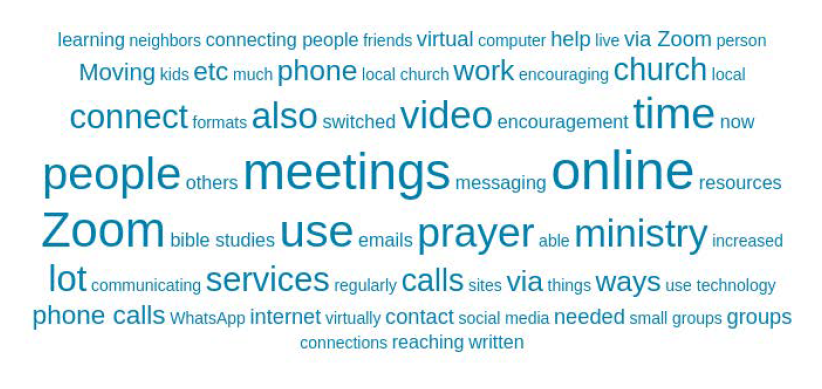























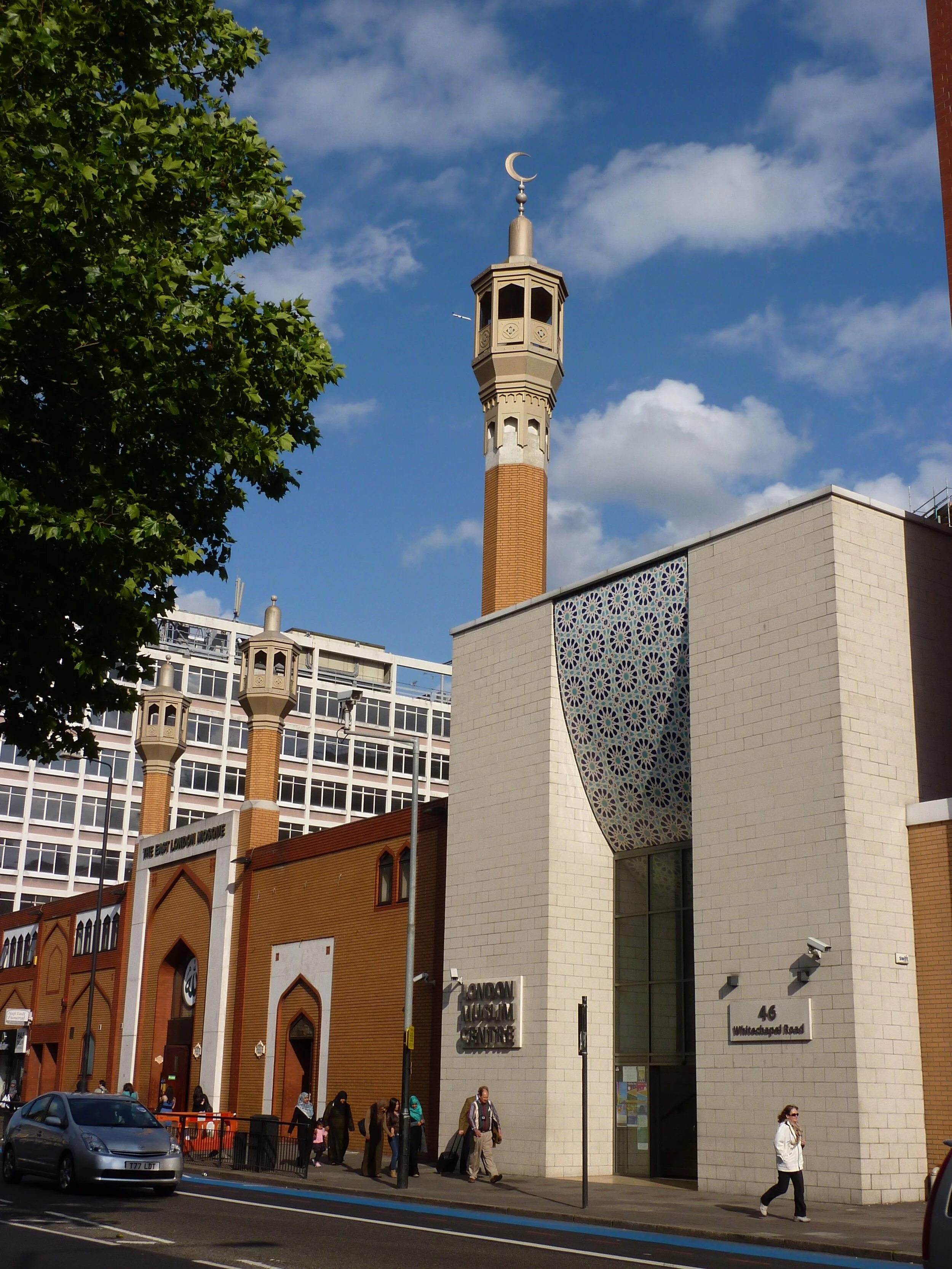










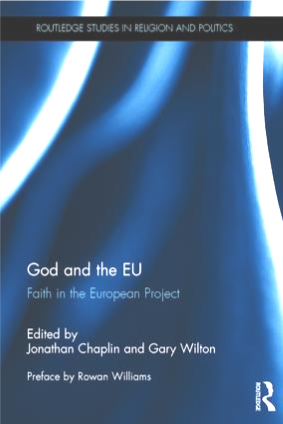

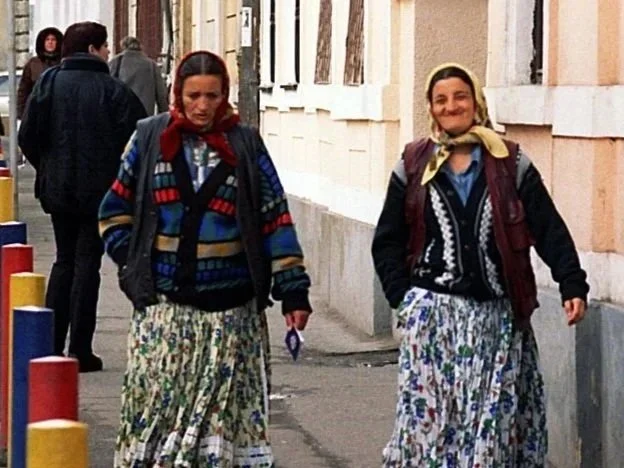


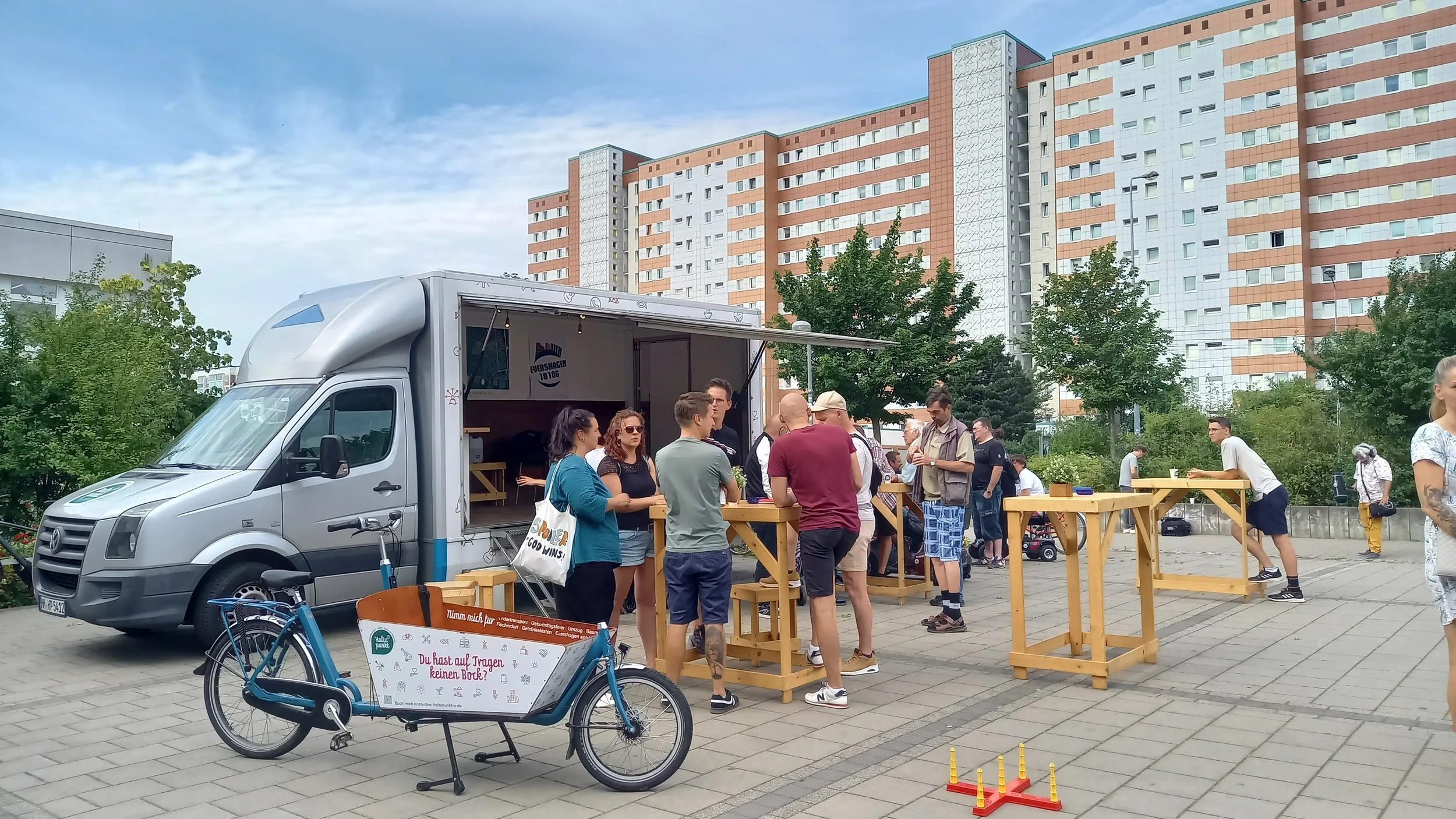








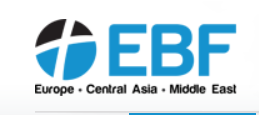

























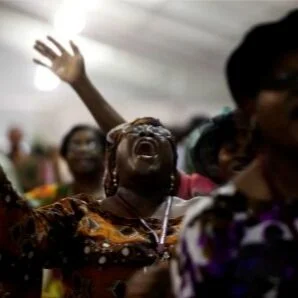






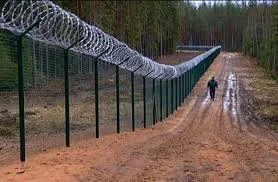

















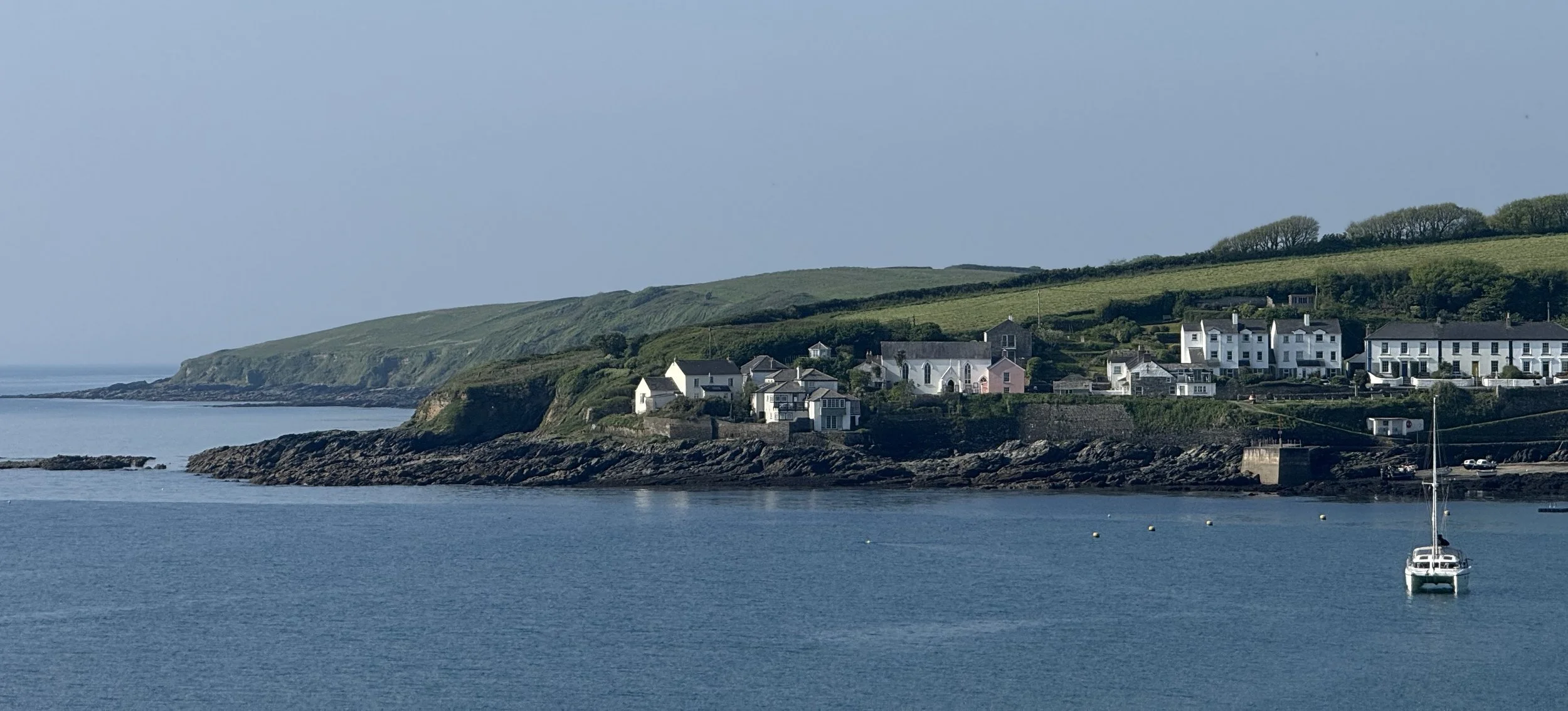
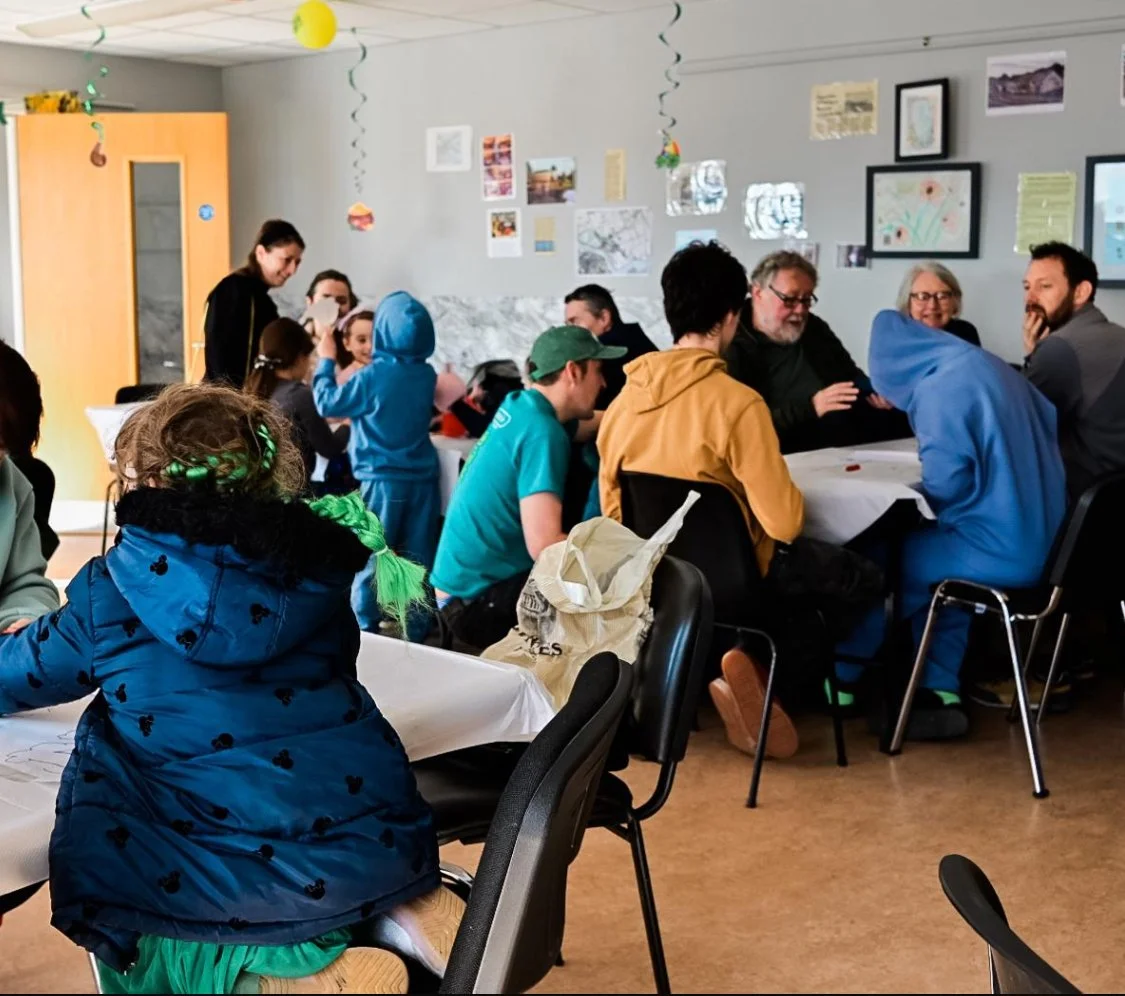




























A study released in 2018 entitled “Europe’s Young Adults and Religion,” by British professor of theology and sociology of religion Stephen Bullivant, demonstrates one of the most crucial issues for mission in Europe today.